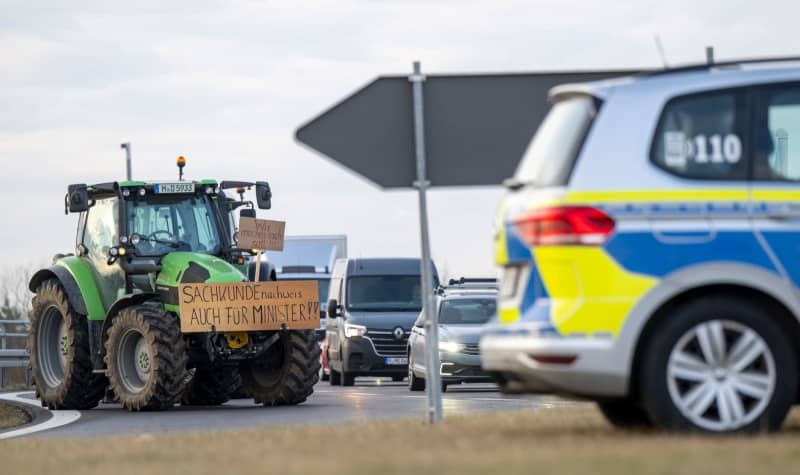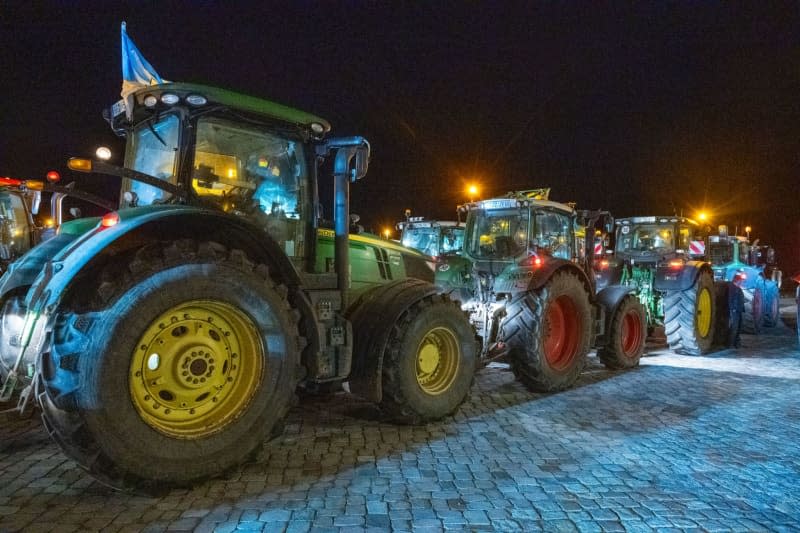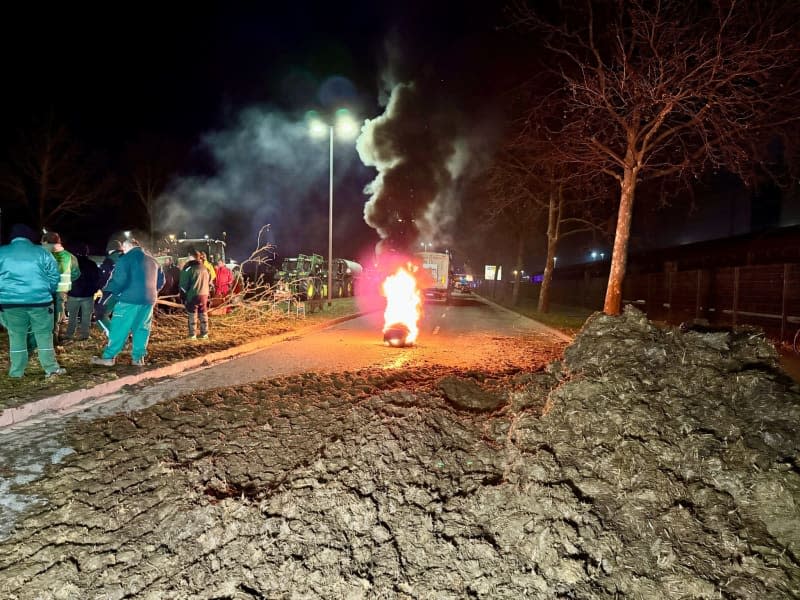Fuel subsidy cut put on hold as German farmers continue protests

- Oops!Something went wrong.Please try again later.
The upper chamber of Germany's parliament on Thursday delayed consideration of controversial plans to phase out diesel fuel subsidies for farmers.
The subsidy cut has enraged Germany's agricultural sector and triggered ongoing protests by farmers. Chancellor Olaf Scholz's coalition government has agreed to more slowly phase out the subsidy but has otherwise held firm on the plans.
The move by the Bundesrat will give the leaders of Germany's 16 states more time to weigh concerns and demands from farmers, said Conrad Clemens, a top deputy to Lower Saxony's state premier Stephan Weil, in a post on X (formerly Twitter).
The Bundesrat is made up of the state premiers from all 16 states.
The subsidy cut is part of a reworked 2024 budget that aims to close major budget gaps.
The move has been met with outrage by farmers, who argue that the subsidy cuts will add to financial difficulties and make it harder to compete with farmers elsewhere in the European Union.
The president of the German Farmers' Association, Joachim Rukwied, welcomed the move as "a clear signal that the states are putting the brakes" on the coalition's budget proposals, which include the subsidy cuts.
The conservative opposition CDU/CSU bloc has fought to keep the agricultural fuel subsidies in the Bundestag, Germany's lower house of parliament.
Protests by farmers over the subsidy cuts have continued for weeks across Germany.
Overnight, farmers set fire to tyres and dumped liquid manure on the road during a protest in the central German city of Magdeburg.
Police in the Bavarian region of Lower Franconia, meanwhile, launched a criminal probe into dumped hale bales, heaps of manure and burning tyres that blocked entrances to motorways early on Thursday morning.
Authorities suspect farmers are responsible and are investigating on suspicion of dangerous interference with road traffic and possible environmental offences.
"I say clearly and unequivocally: anyone who creates obstacles on roads where high speeds are sometimes permitted and endangers others is clearly going too far! We can count ourselves lucky that nobody was injured," said Lower Franconian police chief Detlev Tolle.
In Magdeburg, farmers blockaded a road in an industrial area in the north of the city overnight, as a dpa reporter witnessed, and police and emergency services repeatedly extinguished tyres that had been set alight.
The local state agricultural industry group, the Saxony-Anhalt Farmers' Association, said that the protest showed the extent of the frustration within the sector.
"As long as this situation persists, we will have to expect further protests," said a spokesman for the local farmers' association.
On Wednesday, farmers in the state had once again staged protests and blocked almost all motorway entrances for hours with parked tractors and other heavy farm vehicles.



